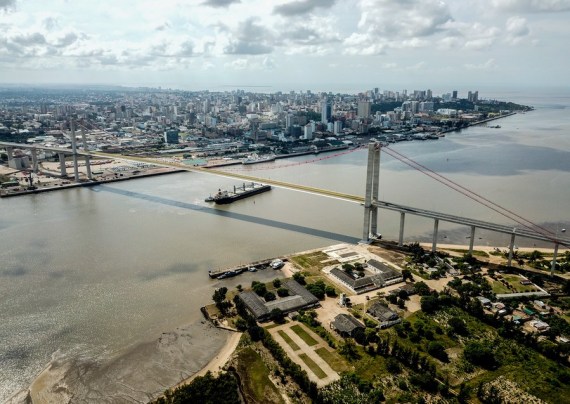Isaac Nana Kofi Asare
Member
Macau Institute for Corporate Social Responsibility in Greater China (MICSRGC)
The nexus between businesses and their immediate surroundings has shifted dramatically in recent years because of the requirement for organisations to protect the environment in which they operate as well as make a profit. Many companies today understand the importance of protecting the environment in which they conduct business as well as making societal contributions through CSR in order to maintain license to continue uninterrupted operations. According to Ştefan Cristian Gherghina of the Bucharest University of Economic Study, the management of every company has responsibility to maximize shareholder wealth while adding value to society. The triple bottom line broadens the definition of the measure of business success to include contributions to the welfare of society, the environment, and the economy as a whole.

Source: https://uwex.wisconsin.edu/stories-news/triple-bottom-line
Nevertheless, the understanding of corporate social responsibility (CSR) has evolved, as evidenced by the diverse range of literature exploring its meanings, forms, and impacts. CSR has increasingly become a means to foster sustainable development within societies. While CSR initiatives predominantly target specific communities, they primarily focus on providing essential goods and social services, such as access to clean water, educational support, and the construction of hospitals, among others. Certainly, acknowledging the social value of such actions is crucial. However, it is important to note that certain CSR practices can still be ambiguous at times. In some cases, the social commitment of multinationals in Africa seems to be the tree that obscures the forest. In the context of Africa, CSR practices often serve more as a marketing tool to project alignment with community aspirations rather than as a means to address crucial issues like environmental compliance, poverty alleviation, adherence to labor laws, and fostering inclusive social dialogue.
The implementation of CSR: Between Infancy and Ambiguity
Although CSR initiatives are prevalent in more advanced countries, its implementation in Sub-Saharan Africa, particularly in landlocked regions, is still in its early stages. Landlocked developing countries (LLDCs) face unique developmental challenges due to their geographical limitations. Furthermore, apart from the geographical constraint of being landlocked, these countries also confront the challenge of limited connectivity to global markets. As a consequence, the costs associated with transporting goods and individuals become exorbitant. The United Nations Conference on Trade and Development (UNCTAD) reveals that, on average, landlocked developing countries (LLDCs) allocate nearly double the amount of their export earnings towards transportation and insurance services compared to other developing nations, and three times more than developed economies. This predicament significantly hinders trade and economic progress, posing formidable obstacles for these nations.
Unemployment, insufficient infrastructure including roads and healthcare systems, food insecurity, and poverty are pressing issues faced by LLDCs. Among these challenges, the lack of road infrastructure is particularly critical for these countries, as roads play a crucial role in facilitating trade supply chains. Recognizing this, during the 27th United Nations Climate Change Conference in Egypt in November 2022, an announcement was made to launch a new program called the “Sustainable Transport Initiative.” Taking into account the interconnectedness of climate, water, food, and energy, it is highly compelling to emphasize this nexus, particularly within the African context. In this equation, the role of transportation is pivotal as it enables these sectors to achieve improved outcomes. An illustrative instance is the conflict in Ukraine, which resulted in disruptions to shipments at Black Sea ports. Consequently, a severe food crisis emerged in the Middle East and North Africa. The repercussions of this crisis extended to the Horn of Africa, affecting tens of millions of people who heavily rely on imported grains from Ukraine and Russia. As a result, Kenya, Ethiopia, and Somalia experienced alarming levels of food scarcity, leading to widespread hunger.

China’s Role in Bridging the Gap
This is the area where LLDCs require significant assistance, particularly from international organizations and countries such as China. While there are existing programs like Sino-Africa Cooperation and the Belt and Road Initiative that have encouraged Chinese companies to contribute to infrastructure development in certain African countries, further support is needed. As Chinese companies expand their global presence, an increasing number of them are actively engaging in corporate social responsibility (CSR) initiatives both within China and overseas.
According to statistics from the Chinese Ministry of Commerce (MOFCOM), more than 3,800 Chinese investors are operating in Africa. These investments primarily focus on sectors such as construction, mining (including oil, gas, and minerals), manufacturing, finance, leasing, and business services. Chinese companies strive to fulfill their social responsibilities in Africa, placing importance on their obligations to stakeholders, including employees, local communities, and governments. According to research by the China-Africa Business Council, Chinese companies operating in Africa are leveraging their expertise, innovation capabilities, and business management strengths as social capital to tackle social and environmental challenges in impoverished areas. For example, Huawei, since its inception as one of the leaders in the information and communications technology market in Africa, has been actively involved in philanthropic activities that have provided important support to the building of the company’s brand alongside growing with Africa which is the vision of its CSR. Chinese companies can play a significant role in bringing CSR activities into African LLDCs, particularly in the construction of roads, which is crucial for trade and other industries in the following ways:
- Partnership with local governments: Chinese companies can collaborate with local governments in LLDCs to identify priority road infrastructure projects. This partnership can involve joint planning, financing, and implementation of road construction initiatives.
- Sustainable and inclusive road infrastructure: Chinese companies can prioritize the construction of sustainable and inclusive road infrastructure that considers environmental impact, social inclusion, and the needs of local communities. This may involve incorporating eco-friendly practices, ensuring accessibility for all, and considering the socio-economic benefits for local populations.
- Long-term commitment and maintenance: Chinese companies can demonstrate a long-term commitment to the road infrastructure projects they undertake in LLDCs by ensuring proper maintenance and upkeep. This includes establishing mechanisms for regular inspections, repairs, and ongoing support to ensure the sustainability and longevity of the roads.
By actively engaging in these strategies, Chinese companies can contribute to the development of road infrastructure in African LLDCs, facilitating trade, connectivity, and economic growth while promoting sustainable and inclusive development.
IN PARTNERSHIP WITH:





















